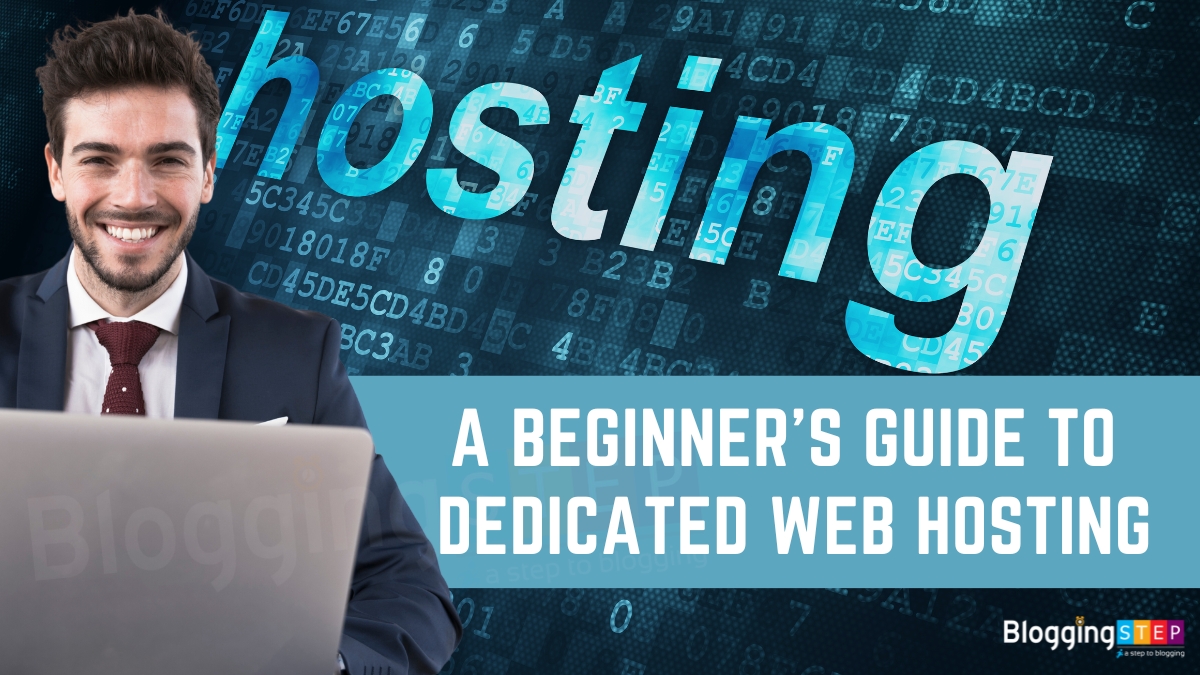
In today’s digital age, having a robust and reliable web hosting solution is crucial for businesses and individuals seeking to establish a strong online presence. One option that stands out from the rest is dedicated web hosting. In this article, we will explore what dedicated web hosting is all about, how it works, and why it may be the ideal solution for your website needs. So, let’s dive in and discover the world of dedicated web hosting!
Table of Contents
What is Dedicated Web Hosting?
Dedicated web hosting refers to a hosting environment where an entire physical server is dedicated to serving the needs of a single website or client. This means a single physical server is leased to one client or website only.
When you opt for dedicated hosting, your website resides on a server that is exclusively dedicated to serving your web content. This means you have full control over the server’s configuration, software installations, and security measures.
You can tailor the server environment to suit your specific requirements, ensuring optimal performance and customization.
The hosting provider is responsible for maintaining the hardware, network connectivity, and data center infrastructure, while the client is responsible for managing their website and server configuration.
Unlike shared hosting, where multiple websites share server resources, dedicated hosting provides exclusive access to all the server’s resources, including CPU, RAM, storage, and bandwidth to the client. This exclusivity translates into enhanced performance, security, and control.
Dedicated web hosting offers scalability and can accommodate websites with high traffic volumes and complex applications.
Advantages and Disadvantages of Dedicated Web Hosting
Advantages of Dedicated Web Hosting
- Enhanced Performance: With dedicated web hosting, you have exclusive access to server resources, ensuring optimal performance for your website or application. There are no resource-sharing issues that can occur in shared hosting environments, resulting in faster loading times, better response rates, and improved user experiences.
- Reliability and Stability: Dedicated hosting offers high levels of reliability and stability. Since you are not sharing server resources with other websites, you have full control over server configurations and can implement robust hardware setups. This minimizes the risk of performance issues or downtime, ensuring that your website remains accessible to users consistently.
- Increased Security: Dedicated web hosting provides enhanced security compared to shared hosting. You have full control over security measures and can implement customized security protocols tailored to your specific needs. This includes setting up firewalls, intrusion detection systems, and regularly updating security patches. The isolated server environment reduces the risk of security breaches or data leaks from other websites on the server.
- Customization and Flexibility: Dedicated hosting allows for extensive customization and flexibility. You have full control over server settings, choice of operating system, and can install any software or applications required for your website or business. This level of customization enables you to optimize the server environment to meet the specific needs of your website or application.
- Scalability: Dedicated hosting offers scalability options that allow you to expand server resources as your website grows. You can easily upgrade hardware components such as CPU, RAM, storage, and bandwidth to accommodate increased traffic and resource demands. This scalability ensures that your website can handle growth without disruptions or the need for server migrations.
Disadvantages of Dedicated Web Hosting
- Higher Cost: Dedicated hosting is typically more expensive than shared hosting or other hosting options. Since you have exclusive access to server resources, you are responsible for the entire cost of the server, its maintenance, and management. This can be a significant investment, especially for small businesses or websites with limited budgets.
- Technical Expertise Required: Managing a dedicated server requires technical expertise or dedicated IT personnel. You need to have knowledge of server administration, security configurations, software installations, and troubleshooting. If you don’t have the necessary skills, you may need to hire professionals or opt for managed dedicated hosting, which can incur additional costs.
- Maintenance and Monitoring: With dedicated hosting, you are responsible for server maintenance, updates, and regular monitoring. This includes performing system updates, security patches, hardware maintenance, and proactive monitoring to ensure optimal performance. This ongoing maintenance can be time-consuming and may require dedicated resources.
- Limited Support: While many hosting providers offer technical support for dedicated hosting, the level of support may vary. Basic support may cover hardware issues or network connectivity problems, but you might need to rely on your own technical expertise for advanced server configurations or troubleshooting. Managed dedicated hosting plans often provide more comprehensive support but at an additional cost.
- Longer Setup Time: Setting up a dedicated server and configuring it to your specific requirements can take more time compared to shared hosting or other pre-configured hosting options. You need to provision the server, install the necessary software, and optimize the settings before your website can go live. This longer setup time can delay the launch of your website or application.
- Overkill for small websites: Dedicated hosting may not be necessary for small websites with low traffic volumes and simple requirements, as shared hosting can provide sufficient resources at a lower cost.
It’s important to consider these advantages and disadvantages of dedicated web hosting in relation to your specific needs, budget, technical capabilities, and growth plans. Assessing your requirements and understanding the trade-offs will help you determine if dedicated hosting is the right choice for your website or application.
How Does Dedicated Web Hosting Work?
- Exclusive Server Allocation: With dedicated web hosting, an entire physical server is allocated exclusively to a single user or website. This means you have full access to all the server’s resources, including processing power, memory, storage, and bandwidth.
- Server Configuration and Setup: When you opt for dedicated hosting, the hosting provider sets up and configures the server according to your specific requirements. You can choose the operating system (such as Windows or Linux), select hardware specifications, and install necessary software.
- Enhanced Performance: Since you are the sole user of the server, you don’t have to worry about resource limitations caused by other websites sharing the same server. This exclusivity translates into enhanced performance, faster loading times, and minimal server response delays.
- Improved Security: Dedicated hosting offers a higher level of security compared to shared hosting. You have full control over the server’s security measures, allowing you to implement robust security protocols, firewalls, and encryption methods tailored to your specific needs. This reduces the risk of unauthorized access, data breaches, and malware attacks.
- Customization and Control: With dedicated hosting, you have complete control over the server environment. You can customize the server settings, install custom software and applications, and configure the server to meet your specific requirements. This level of control allows you to optimize the server’s performance and tailor it to your unique needs.
- Scalability Options: Dedicated hosting provides scalability options to accommodate your website’s growth. As your website traffic increases or resource demands change, you can easily upgrade the server’s resources. This ensures that your website can handle increased traffic volumes and maintain optimal performance.
- Server Management: With dedicated hosting, you have the choice between managed and unmanaged hosting. In managed hosting, the hosting provider takes care of server management tasks such as maintenance, security updates, and backups. In unmanaged hosting, you are responsible for managing and maintaining the server yourself.
- Server Monitoring and Support: Dedicated hosting often includes server monitoring services to ensure optimal performance and uptime. The hosting provider may offer technical support and troubleshooting assistance for server-related issues. However, the level of support may vary depending on the hosting provider and the type of plan chosen.
- Dedicated IP Address: Dedicated hosting typically provides a dedicated IP address for your website. This means your website has a unique identifier on the internet, improving SEO efforts and facilitating SSL certificate installation for secure transactions.
Overall, dedicated web hosting works by providing exclusive access to a physical server, offering enhanced performance, security, customization, and control. It allows you to tailor the server environment to meet your specific needs and scale resources as your website grows.
What are dedicated web hosting features and packages?
Dedicated web hosting features and packages can vary depending on the hosting provider and the specific plan you choose. However, here are some common features and packages typically offered in dedicated web hosting:
- Dedicated Server Resources: Dedicated web hosting provides exclusive server resources for your website or application. This includes dedicated CPU cores, RAM, storage, and bandwidth, ensuring that you have dedicated resources to handle your website’s demands without sharing them with other users.
- Operating System (OS) Options: Dedicated web hosting allows you to choose the operating system that best suits your needs. Common options include Linux distributions (such as CentOS, Ubuntu, or Debian) and Windows Server editions (such as Windows Server). The choice of OS depends on your familiarity, software requirements, and compatibility with your applications.
- Root/Administrator Access: With dedicated web hosting, you typically have full root access (for Linux-based servers) or administrator access (for Windows-based servers) to your dedicated server. This enables you to have complete control over the server environment, install custom software, configure server settings, and manage security measures.
- Managed and Unmanaged Options: Dedicated web hosting plans may offer both managed and unmanaged options. With managed hosting, the hosting provider takes care of server management tasks such as server setup, software updates, security patches, monitoring, and backups. Unmanaged hosting puts the responsibility of server management entirely on you, giving you more control but requiring technical expertise.
- Scalability and Upgrade Options: Dedicated hosting plans often provide scalability options to accommodate your website’s growth. This includes the ability to upgrade server resources, such as CPU, RAM, storage, or bandwidth, as your needs increase. Scalability ensures that your hosting environment can handle higher traffic volumes and resource demands.
- Enhanced Security Measures: Dedicated web hosting offers advanced security features to protect your website and data. These can include dedicated firewalls, intrusion detection systems, DDoS protection, SSL certificates, and regular security audits. The level of security provided may vary between hosting providers, so it’s important to assess the security measures included in your chosen package.
- Bandwidth and Data Transfer: Dedicated web hosting plans typically include generous bandwidth allowances to handle your website’s data transfer needs. The amount of included bandwidth can vary depending on the package, and some providers may offer unlimited bandwidth options. Be mindful of any bandwidth restrictions or additional charges for exceeding the allocated bandwidth.
- Server Monitoring and Support: Dedicated hosting often includes server monitoring to ensure optimal performance and identify any issues promptly. Additionally, support services are provided to address technical queries or server-related problems. The level of support may vary, with options ranging from basic support to 24/7 dedicated support teams.
- Backup and Disaster Recovery: Many dedicated hosting plans offer backup and disaster recovery options. This may include regular automated backups, offsite storage for data redundancy, and the ability to restore your server to a previous state in the event of data loss or system failures. Backup frequency and retention periods can vary, so it’s essential to understand the backup policies of your hosting provider.
- Additional Services and Add-ons: Dedicated hosting packages may offer additional services or add-ons to enhance your hosting experience. These can include content delivery network (CDN) integration, load balancing, server caching, database management, or domain registration services. These optional services can be beneficial depending on your specific requirements.
Remember to carefully review the features and packages offered by different hosting providers to find the one that best aligns with your needs, budget, and technical requirements. Consider factors such as performance, scalability, security, support, and additional services to make an informed decision about the dedicated hosting package that suits your website or application.
Why should you choose dedicated web hosting for your website?
Choosing dedicated hosting for your website offers several compelling reasons and benefits. Here are some key reasons why you should consider dedicated hosting:
- Enhanced Performance: Dedicated hosting provides exclusive access to server resources, ensuring optimal performance for your website. With dedicated resources such as CPU power, memory, and bandwidth, your website can handle high traffic volumes and resource-intensive applications without experiencing performance issues or slowdowns. This results in faster loading times, smooth user experiences, and increased customer satisfaction.
- Increased Reliability: Since you have full control over the dedicated server, you can implement robust hardware configurations and choose reputable hosting providers known for their reliable infrastructure. Dedicated hosting typically comes with high uptime guarantees, ensuring that your website remains accessible to users at all times. This reliability is crucial, especially for businesses that heavily rely on their online presence to generate revenue and maintain customer trust.
- Enhanced Security: Dedicated hosting offers advanced security features and measures to protect your website and data. You have the flexibility to customize security protocols, implement firewalls, and use encryption methods tailored to your specific requirements. Unlike shared hosting, where multiple websites share the same server, dedicated hosting isolates your website, reducing the risk of security breaches and unauthorized access.
- Customization and Flexibility: Dedicated hosting provides complete control over the server environment, allowing you to customize it according to your specific needs. You can choose the operating system, install specific software and applications, and optimize server settings to meet the requirements of your website or business. This level of customization and flexibility empowers you to tailor the server to your unique needs, ensuring optimal performance and functionality.
- Scalability: Dedicated hosting offers scalability options that allow you to easily expand your resources as your website grows. With dedicated hosting, you can add more CPU power, increase memory capacity, and scale up storage and bandwidth based on your evolving needs. This scalability ensures that your website can handle increased traffic volumes, accommodate growing user demands, and maintain optimal performance without the need for server migrations or disruptions.
- Dedicated IP Address: Dedicated hosting typically provides a dedicated IP address for your website. This exclusive IP address enhances website credibility and improves SEO efforts. Additionally, it allows you to set up SSL certificates for secure transactions, an important factor for e-commerce websites or websites handling sensitive user information.
- Technical Support: Many dedicated hosting providers offer robust technical support services to assist you with server management, maintenance, and troubleshooting. Managed dedicated hosting plans come with 24/7 support, ensuring that you have access to expert assistance whenever you need it. This can be particularly beneficial for businesses with limited technical resources or those seeking peace of mind knowing that server-related issues are promptly addressed.
Frequently Asked Questions about Dedicated Web Hosting
Getting Started with VPS Web Hosting
If you’re interested in learning about another popular hosting option – VPS Web Hosting, be sure to check out our blog post on “What Is VPS Web Hosting? A Beginner’s Guide to VPS Hosting” by clicking on the below button:
Conclusion
Dedicated web hosting offers a range of benefits for businesses and individuals seeking maximum performance, security, and control over their online presence.
With exclusive access to server resources and customization options, dedicated hosting provides a solid foundation for delivering seamless user experiences and driving digital success.
Assess your website’s requirements, budget, and technical expertise to determine whether dedicated web hosting is the right choice for you.
Thank you so much for reading this article.





